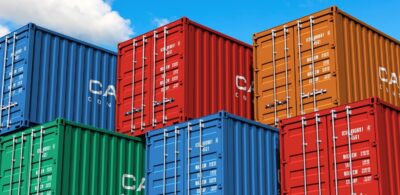Corrs High Vis: Episode 14 – Third Party Arbitration Funding Regimes in Asia
20 July 2017
How do recent developments in third party arbitration regimes in Singapore and Hong Kong affect the international dispute resolution community? In this week’s Corrs High Vis, Senior Associate Jaclyn Smith, Associate Catherine O’Keefe discuss the changes. Corrs High Vis tackles the issues that matter in the construction industry. The podcast series, brought to you by Corrs Construction team, offers analysis and insights to help you make smarter decisions.
These podcasts do not provide legal or other advice. Obtain legal or other professional advice as required.
Jaclyn Smith: Commentator – Construction
Catherine O’Keefe: Corrs Chambers Westgarth – International and Arbitration Practice - Associate
JACLYN: Hello and welcome to High Vis the Corrs Chambers Westgarth Construction podcast. My name is Jaclyn Smith and I am a senior associate in the Construction team here at Corrs as well as the Australian representative for the ICC Young Arbitrator Forum. Recent developments to third party arbitration funding regimes in Hong Kong and Singapore have created a flurry of interest in the International Dispute Resolution community. To speak to these developments and what they mean for parties involved in international arbitrations in these jurisdictions I am joined today by my colleague Catherine O’Keefe. Catherine is an associate in our international arbitration practice and is a Melbourne ambassador for ICCA 2018. Welcome to the podcast Catherine.
CATHERINE: Thank you Jac great to be here.
JACLYN: Third party funding and arbitrations is very topical at the moment particularly with Singapore and now Hong Kong passing legislation that will allow for this. In Singapore there are two key dates that people really need to be aware of in this space. The first date is 10 January this year when the legislation passed in Singapore allowing third party funding and international arbitrations and related proceedings before the Singaporean Courts. The second date to be mindful of is 1 March which is the date on which these changes entered into force in Singapore. Previously the position in Singapore was that third party funding and arbitrations was prohibited based on the common law torts of the maintenance and champerty. Maintenance is probably best described as improperly stirring up litigation and strife by giving aid to one party or to bring or defend a claim without just cause or excuse. Champerty goes hand-in-hand with that and occurs when the person maintaining another stipulates for a share of the proceeds. So the concerns with the torts of maintenance and champerty in Singapore as well as other jurisdictions that have historically had an issue with the use of third party funding in both arbitrations and domestic legal proceedings is essentially unnecessary legal action. Catherine we have now seen similar developments in Hong Kong can you perhaps give us an update on what has happened over there?
CATHERINE: So Jaclyn these changes have been expected in Hong Kong for quite a long time. Back in 2013 in June of that year the Law Reform Commission of Hong Kong commenced a review of the position with regard to third party funding for arbitration and that sat dormant for a little while and then in October 2016 the Commission released its report on this issue recommending the allowance of third party funding for both arbitration and mediation. Up until this time third party funding was unlawful with respect to litigation but there was no express prohibition in relation to arbitration or mediation and that has now since been amended in June this year when legislation was passed to allow for third party funding in international arbitration specifically this involves amendments to both the arbitration and mediation ordinances in much the same way as we’ve seen developments in Singapore.
JACLYN: That is really interesting Catherine I think just coming along from that one of the things that came out of the recent ICC Young Arbitrator Forum Global Conference that I attended in New York recently was that there is concern globally with how third party funding is currently used in a lot of different jurisdictions, it is not just Asia so the delegates from Europe noted that there had been progress in France with third party funding now being permitted but there was still a prohibition of its use in Ireland. There was also some discussion raised about the way that third party funding has shifted and the format it is being used in namely with the update of its use in investor state disputes. So there are now funds that are being formed by philanthropic organisations like the Bloomberg Foundation and the Bill and Melinda Gates Foundation to assist States against Big Tobacco for example. One of the other important issues that fact really heavily in these discussions was that there is still a real need for further regulation of the use of third party funding and arbitrations so at the moment there are guidelines currently in place that govern when third party funding needs to be disclosed to a Tribunal but the suggestion at the conference was that we need rules in place to properly regulate this area more consistently around the world.
CATHERINE: Practically speaking for clients the absence of rules at the moment means that there could be an inconsistent application of the way that third party funding is treated by arbitral tribunals across various jurisdictions and within various institutions but it is important for clients to note that there may be disclosure obligations attached with using a third party funder. For example your arbitral tribunal may ask if there is funding as it could impact the way in which they run the arbitration itself so for example, if you had two parties of inequitable means where there may be use for an electronic trial for example, electronic hearing rather, if one party couldn’t previously afford this but now has access to a funder it is important for the Tribunal to be aware of these factors as it levels the playing field and can impact on the way in which the entire proceed is run. Similarly the developments are not just confined to these sorts of changes with disclosure obligations more broadly speaking the developments in Singapore and Hong Kong are particularly important for international arbitration as they remove the competitive edge once enjoyed by other jurisdictions which have always allowed for third party funding. These changes seek to make a way for an increase in appeal of these jurisdictions that have seats of arbitration in particularly bringing arbitration into the Asia-Pacific where third party funding is required by certain parties so in terms of the practical changes that parties might expect to see a Tribunal for arbitration seated in these Asia-Pacific jurisdictions may now ask whether you have such funding in place and may therefore be able to proceed on a stronger note than they would previously.
JACLYN: Catherine with the upcoming ICCA 2018 conference next year are we likely to see third party funding feature quite heavily in the program?
CATHERINE: So for those is are not aware the upcoming ICCA conference is being held from 15 – 18 April 2018 in Sydney and third party funding is featuring on the program as it currently stands within the session on the ‘realities of arbitration economics, who gets to play and what are the implications’. More specifically the session will be looking at the report from the ICCA and the Queen Mary Taskforce on third party funding in international arbitration and looking at the developments in this space so it is definitely one to get along to if you would like to learn more about third party funding and arbitration.
JACLYN: Great thank you for joining me today Catherine I think that was a really important discussion and I think a lot of our clients will be interested to hear what is happening in particularly Hong Kong and Singapore and also just to be aware of what else might be happening around the world in this space too.
So to our listeners we hope you will join us again for the next episode of Corrs High Vis.
Listen and subscribe to Corrs High Vis on:
Tags
This publication is introductory in nature. Its content is current at the date of publication. It does not constitute legal advice and should not be relied upon as such. You should always obtain legal advice based on your specific circumstances before taking any action relating to matters covered by this publication. Some information may have been obtained from external sources, and we cannot guarantee the accuracy or currency of any such information.



